Mike Wallace

Journalist • Host • Actor • Personality
Birth Name: Myron Leon Wallace
Birth Date: May 9, 1918
Death Date: April 7, 2012
Birth Place: Brookline, Massachusetts
Children: Chris Wallace
One of the most respected - and feared - names in television journalism, Mike Wallace was an investigative reporter who subjected some of the most prominent names in politics and world news to his particular brand of intense and abrasive interviews. A radio announcer and occasional actor, Wallace began to hone his unique style on television in the late 1950s, quickly making a name for himself as a powerful and uncompromising interviewer whose questions frequently left his guests frazzled and dismayed - a condition later termed "Mike fright."
His greatest showcase was the primetime CBS news magazine "60 Minutes" (1968- ), where he regularly grilled news figures ranging from presidents and captains of industry to celebrities and accused criminals. His reporting earned him numerous awards, as well as a few legal battles, most notably against General William Westmoreland, who sued him for libel in 1985. Wallace retired from weekly appearances on "60 Minutes" in 2006, but continued his connection to CBS News as a "Correspondent Emeritus" before passing away at age 93 on April 7, 2012.
Born Myron Leon Wallace in Brookline, MA on May 9, 1918, Wallace began his journalistic career as a reporter for the University of Michigan's school newspaper. After graduating with a Bachelor of Arts degree in Broadcasting in 1939, Wallace logged hours as a reporter and writer for various radio stations in Michigan and later served as a communications officer in the Navy during World War II. After his discharge, Wallace returned to radio, where he worked in a variety of formats ranging from announcer and talk show host to news reader and actor.
In the late 1940s and early '50s, Wallace made the jump to television, where he found regular work as a host for quiz shows like "Guess Again" (CBS, 1951) and as an actor on anthology series like "Studio One" (CBS, 1948-1958). He was also a series regular on "Stand By For Crime" (ABC, 1949), a low-budget police drama that made history as the first television drama broadcast from Chicago to audiences in New York. For that program and other early appearances, he was billed under his birth name of Myron Wallace. He was also a regular presence in radio news throughout the 1950s.
Wallace's career as an interviewer began in 1951 with "All Around the Town" (CBS, 1951-52), an informal chat program co-hosted by his second wife, Buff Cobb. He continued to maintain a foot in entertainment while cultivating his news career until the mid-1950s, when he was tapped to anchor nightly newscasts for the Dumont Network in New York. The show's producer, Ted Yates, later brought Wallace front and center for a new interview program titled "Night Beat" (WABD, 1956), which pitted him against a host of formidable figures from the worlds of politics and the arts.
Framed against a stark black background and never without a lit cigarette in hand, Wallace established his signature style and tenor of interview on "Night Beat" - confident, well-informed, deeply probing, even confrontational. The program's guests - ranging from Norman Mailer and Hugh Hefner to Salvador Dali and Billie Holiday - frequently found themselves in a hot-seat situation that more resembled an interrogation than a simple Q&A.
Wallace's approach caught the attention of the networks, and "Night Beat" moved to ABC in 1957, where it was redubbed "The Mike Wallace Interviews" (ABC, 1957-58). The format remained the same, though the interviewees were decidedly more sensational; in its first year, Wallace went mano-a-mano with convicted mobsters, the head of the Ku Klux Klan, UFO experts, and a wide gamut of movie stars. Wallace's brusque delivery often rankled his guests, and after one too many threats of legal action, the show was pulled in 1958. For much of the early 1960s, Wallace was a jack of all trades on television. He kept a hand in reporting as the anchor of a nightly news program for a New York station, and provided coverage of the 1960 presidential election for Westinghouse television and radio networks.
He also served as host for several quiz shows and evening chat programs, as well as David Wolper's syndicated series "Biography" (1961-64, 1979, 1987-2003) and numerous educational films. However, his greatest exposure during this period was as pitchman in television ads for Parliament cigarettes.
The death of Wallace's eldest son, Peter, in a 1962 mountain climbing accident spurred him to focus his energies on news reporting, which began in earnest with his anchor duties on "The CBS Morning News" (CBS, 1963-1987). He remained with the show until 1966, when he returned to reporting for other CBS programs. Among his numerous beats during this period was the 1968 presidential campaign by Richard Nixon. An admitted supporter of the controversial politician, he was offered a job as press secretary with his campaign, but turned it down in favor of a new primetime news program. The show was "60 Minutes," and Wallace was tapped to co-host with veteran news man Harry Reasoner.
Though Wallace's credentials made him an ideal candidate for the position, producer Don Hewitt also took into consideration the contrast offered by Wallace's take-no-prisoners style and the more amiable Reasoner. Wallace also came with extensive contacts with numerous high-profile figures thanks to his previous interview shows, which were useful during the program's coverage of the Watergate scandal and the war in Vietnam.
Over the next 37 year, Hewitt pitted Wallace against virtually every major political figure who agreed to be interviewed for "60 Minutes." Among his most newsworthy subjects were Ronald Reagan, Vladimir Putin, Deng Xiaoping, Malcolm X, and virtually every side of the Middle East conflict, from Menachem Begin and Anwar Sadat to the Shah of Iran and his deposer, the Ayatollah Khomeini. Wallace also interviewed numerous corporate heads, especially those whose companies were involved in underhanded business practices, as well as unethical types from all walks of life. For these situations, Wallace unleashed the most unsettling weapon in his arsenal: the "ambush interview," which utilized hidden cameras and mirrors, among other techniques to turn the subject's own words against them.
Despite his formidable approach, Wallace could also be counted on to give personable and even charming interviews, especially with celebrity guests. Wallace's interviews generated solid ratings for the show and 20 Emmys - including a Lifetime Achievement Emmy in 2003 - three Peabody Awards, two DuPont Columbia Journalism awards, and a host of laurels. He also solidified his reputation as the toughest interviewer in television news, though many critics viewed his approach as sensational and even unethical.
On two occasions, his interview subjects responded to their grilling with libel suits. A 1973 report on war crimes landed Hewitt in a legal battle that ended with a 1979 Supreme Court decision that cleared the producer and Wallace of the charges, but maintained that the plaintiff had the right to view the coverage during the editorial process. A more damaging suit came in 1985 when General William Westmoreland sued CBS over allegations by Wallace that he had conspired to cover up the size and strength of enemy troops in the Vietnam War. Wallace was cleared of the charges, but CBS itself was forced to issue an apology in order to appease Westmoreland.
Wallace's reputation was also called into question by a Vanity Fair article about his coverage of whistleblower Jeffrey Wigand, who blew the cover on tobacco company Brown and Williamson's manipulation of the nicotine in their cigarette products. The article, which served as the basis for the Michael Mann film "The Insider" (1999) - in which he was portrayed by actor Christopher Plummer - alleged that Wallace had bowed to corporate pressure to kill the story before its airing on "60 Minutes." In later interviews, Wallace revealed that the suits had a traumatic effect on his well-being, including a suicide attempt, and forced him to seek treatment from depression.
In 1990, CBS News honored Wallace with a special, "Mike Wallace: Then and Now," which paid tribute to his 50 years in broadcasting. Not one to rest on his laurels, Wallace continued to deliver interviews and news reports from around the world for "60 Minutes" until 2006, when he retired from regular appearances on the program. At the time of his retirement, he was 89, and the oldest personality still active on television. As of 2008, the 90-year-old Wallace retained his association with CBS as a "Correspondent Emeritus."
On April 7, 2012, Wallace passed away at the age 93, surrounded by family at the Waveny Care Center in New Canaan, CT, where he had spent the past few years. CBS president and CEO Les Moonves released the statement: "His extraordinary contribution as a broadcaster is immeasurable and he has been a force within the television industry throughout its existence. His loss will be felt by all of us at CBS."
Credits

Knute Rockne

The Open Mind

Contested Streets

The Colbert Report

Breaking the News
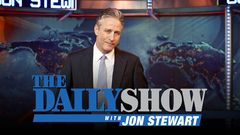
The Daily Show With Jon StewartStream

People of the Century

20th Century With Mike Wallace

Ayn Rand: A Sense of Life

Ayn Rand: A Sense of Life

Perspectives: Grace Kelly

Profiles: Helen Keller

Perspectives: Franklin D. Roosevelt

Perspectives: Will Rogers
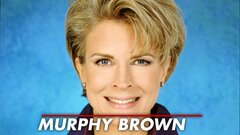
Murphy Brown

Ford Startime

Who Pays?

The Mike Wallace Interview
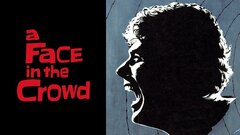
A Face in the CrowdStream
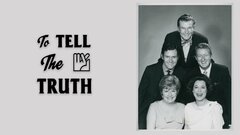
To Tell the Truth

The Big Surprise

Who's the Boss?

I'll Buy That

Mike and Buff

All Around Town

Guess Again

The Victor Borge Show
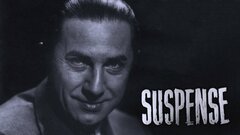
SuspenseStream










